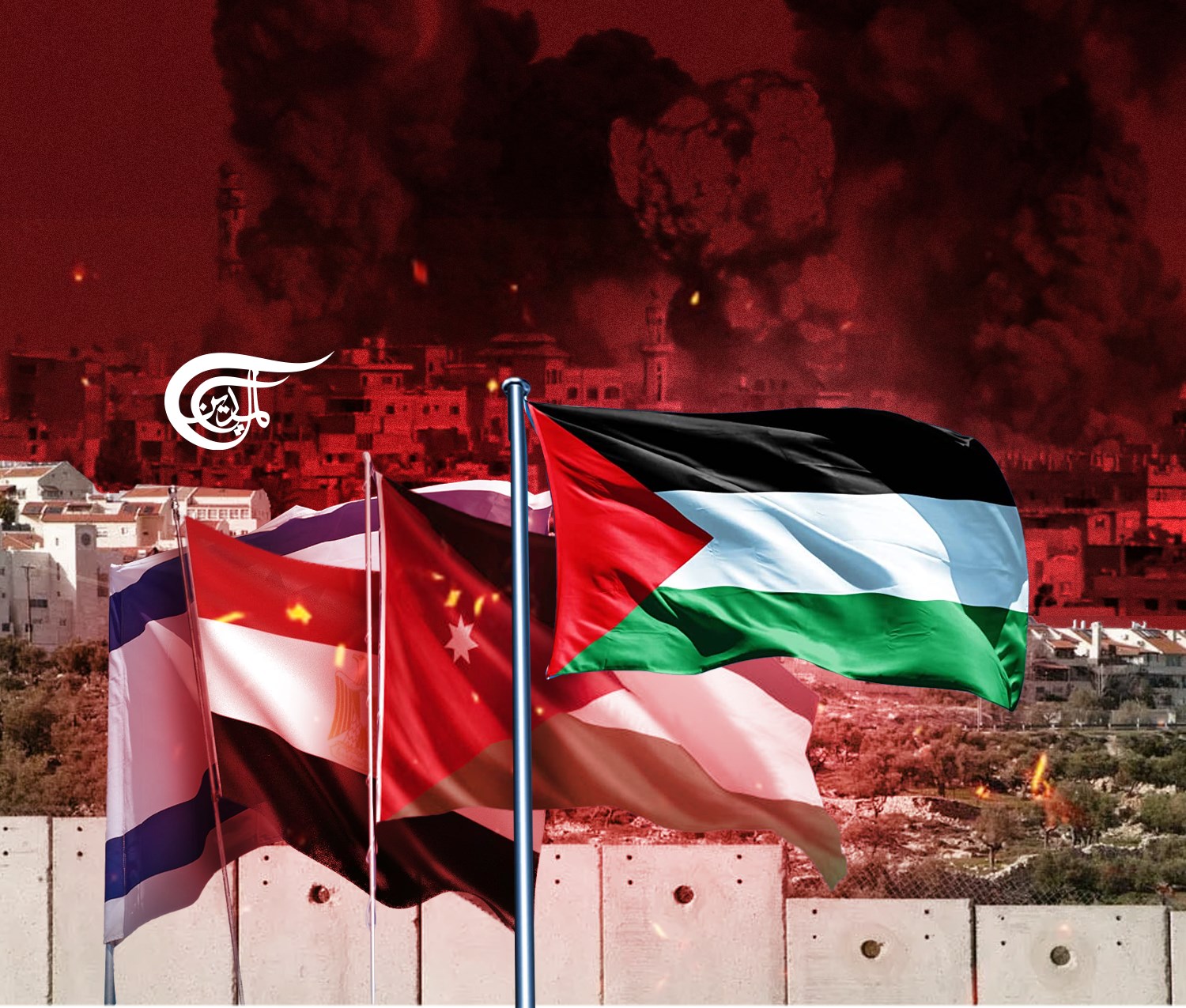The Aqaba PA-'Israel' Summit Destined To Inevitable Failure
The problem with the US 'Fenzel Plan' is not only in its oppressive cracking down on the legitimate struggle of the Palestinian people but also in its being practically counterproductive for their overarching goals.
After repeated massacres committed by the occupation army inside the occupied West Bank, the Palestinian Authority sent a delegation to the Jordanian city of Aqaba to conclude agreements on how to combat the Palestinian Resistance groups. The plan, lacking any connection to realities on the ground, has not only been condemned en masse by the Palestinian people but is also destined to fail.
Just days after Israeli occupation forces violently stormed the city of Nablus, killing 11 Palestinians and injuring over 100, the Ramallah-based Palestinian Authority (PA) sent a delegation to Aqaba, Jordan, to attend what was dubbed a “security summit”. This meeting was attended by Israeli, American, Egyptian, and PA representatives, coming together under the pretext of reducing tensions in the occupied territories. The biggest problem with this meeting, as has historically always been the case, was that the PA is the only one being requested to make any concessions that disadvantage and endanger those whom it is supposed to represent.
In late January, US Secretary of State Antony Blinken made an official visit to occupied Palestine, meeting with Zionist and Palestinian Authority officials. While reports suggest that Antony Blinken had urged Israeli Prime Minister Benjamin Netanyahu to pause illegal settlement expansion and reduce the occupation army’s violent raids in the West Bank, he also had some requests from PA President Mahmoud Abbas. The Israeli PM was asked to simply slow down on its violations of international law, on the other hand, the Palestinian Authority was urged to accept a plan that would see it fight its own people.
The US proposal, which the Biden administration urged Mahmoud Abbas to accept, was drafted by US security coordinator Michael Fenzel, dubbed ‘The Fenzel Plan’. This plan aims to see the US help in training a special Palestinian force, which would be connected to the PA’s security forces, specifically tasked with fighting the Palestinian Resistance groups in the northern West Bank. Essentially, this would mean creating a Palestinian armed force to fight against the Resistance forces, taking the burden off of the Israeli military. This could cause a bloodbath.
While the Israeli leadership refused to implement their side of the bargain - i.e. settlement expansion and raids - the PA leadership has reportedly agreed to implement their side of the agreements made in Aqaba. Although the PA never officially announced the Jordan meeting, the Palestinian people found out about it through leaked information and foreign media reporting. This led to widespread condemnation from the Palestinian political factions and movements in civil society, as well as protests from some senior members within the Fatah party itself. The Jenin Brigades armed group organized a press conference in the Jenin refugee camp, calling on the people to demonstrate against the meeting, and a sizeable demonstration took place in central Ramallah also.
The problem with the US 'Fenzel Plan' is not only in its oppressive cracking down on the legitimate struggle of the Palestinian people but also in being practically counterproductive for their overarching goals. The Palestinian Authority itself is currently in a state of crisis, on legitimacy, security control, and economic levels. All the authoritative polling data during the past few years has shown that the Palestinian people unanimously call upon President Mahmoud Abbas to resign.
It is during this time of an ever-growing crisis, in which the PA is on the brink of adopting a new leader - likely Hussein Al-Sheikh or Majd Farraj - that the Palestinian armed resistance has returned and is rising throughout the West Bank. In the north of the occupied territory, the PA has effectively lost control of the security situation, and this is not just to the credit of the armed groups’ strength there, it is also rooted in the fact that the PA has specifically avoided situations where they would get into clashes with the Resistance.
If the PA security forces employ a special task force to carry out the job of arresting and inevitably killing the Resistance forces in places like Jenin and Nablus, they could risk a bloody and protracted conflict, which could inspire the public to rise up against them. It is no secret that the Palestinian people are united against any form of collaboration or ‘security coordination’ between the PA and Israeli occupation forces. The Palestinian public is already displeased with the behavior of the PA, which has ordered the end of its security coordination with the Israelis three times since 2019 but never actually ended it. The US proposal could cause real issues with the public if implemented and things turn to violence.
Then there is the fact that a large number of the active Resistance fighters, inside both the Jenin Brigades and Lions' Den, are also PA security force members. In addition to this, some of the Resistance fighters are the sons of PA members. Killing or violently arresting these Resistance fighters, with family or direct ties to the PASF itself, could cause internal friction within the security forces themselves and upset entire families, bringing down their wrath on the PA. The PA, if it goes ahead with such a plan, may also lose contact with the groups completely, making things even more difficult for them, not to mention the problem that many members of the PASF may simply refuse to fight against their own people in the Resistance.
The US Biden administration's proposed plan will be a disaster, not only for the Palestinian people but also for the PA itself, and it reflects a disconnect between the realities on the ground and the aspirations of pro-Israeli Zionists in Washington.

 Robert Inlakesh
Robert Inlakesh
 6 Min Read
6 Min Read












